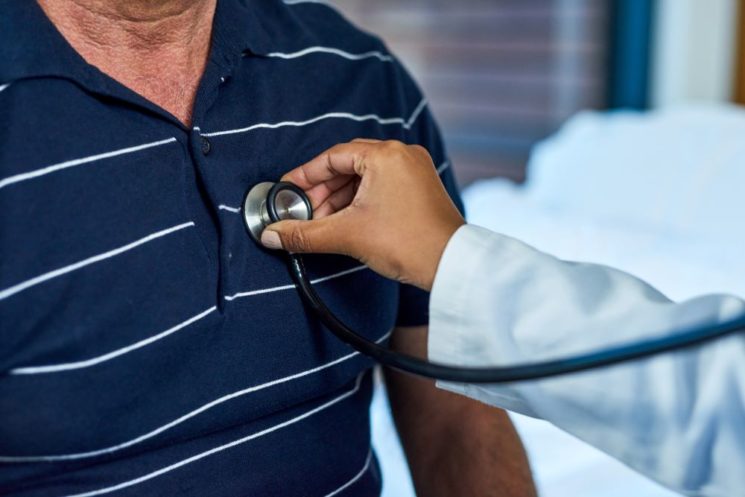
1. Cut down on intake of red and processed meat.
The first step to reducing your bowel cancer risk is to limit your intake of red and processed meat.
Red meat is a great source of protein, vitamins and minerals and a key component of a healthy balanced diet. However, it is recommended that you do not consume more than 350-500g of red or processed meat per week. This is the equivalent of around 3 portions per week.
- Red meat includes beef, pork, lamb, veal, venison and goat.
- Processed meat includes sausages, bacon, ham, cured meats e.g., chorizo, pate and, canned meat e.g., corned beef.
What does a portion look like?
- As part of a Sunday roast (3 slices of meat) = 90g
- A quarter-pounder burger = 78g
- A grilled 80z beef steak = 163g
- A cooked breakfast (2 sausages and 2 thin rashers of bacon) = 130g.
To effortlessly reduce your intake of these foods, try some of these simple swaps:
- Swap sausages or bacon in your cooked breakfast for grilled tomato, hash brown, mushrooms, or beans.
- Swap red meat in your sandwich for tuna, chicken or egg mayonnaise.
- Swap a beef burger for a chicken, veggie or bean burger.
- Use less meat in stews/curries and replace it with more vegetables, beans or pulses such as chickpeas, kidney beans and lentils.
- Swap beef or lamb mince for turkey or vegetarian mince e.g., lasagne, chilli con carne or spaghetti bolognese.
Remember, it is important to eat a balanced diet that includes good sources of iron, such as lentils, beans, eggs, fish, chicken, nuts, and breakfast cereals. This will ensure that your iron levels will not be impacted by decreasing your red meat intake.
2. Increase intake of dietary fibre.
Research suggests that a diet high in fibre can also help reduce your risk of bowel cancer.
Fibre is known to have many benefits. It helps to increase stool bulk and soften stools, allowing food and waste products to move through the gut, thus keeping them healthy.
Foods high in fibre tend to be more filling than low-fibre foods. This means that you’re less likely to overeat which helps people to maintain a healthy weight. Being a healthy weight is associated with a reduced risk of developing cancer.
Good sources of fibre include:
- Wholegrain varieties of bread, breakfast cereals, rice and pasta such as Weetabix, bran flakes, brown rice and wholemeal pasta
- The skin jacket potatoes
- Oats
- Pulses including beans, peas and lentils
- Nuts and seeds
- Fruit and vegetables (particularly those with the skin on).
Adults are recommended to have 30g of dietary fibre each day. Eating enough fruit and vegetables will help individuals achieve this, therefore it is important to aim for 5 portions of fruit and vegetables per day.
It is also important to drink plenty of water to allow fibre to work properly. The Eatwell Guide advises people to drink 6 to 8 cups of glasses of fluid a day.
See also: The top questions about diet and inflammatory bowel disease answered >
3. Limit alcohol consumption.
Alcohol is linked to the development of different types of cancer including bowel cancer. It is recommended to limit alcohol consumption to no more than 14 units of alcohol a week. It is best to spread alcohol throughout the week and include alcohol-free days.
By making these small yet important changes to your diet, you can help to keep your gut healthy and lower your risk of bowel cancer.
At Cromwell Hospital, we have a world leading nutrition and dietetics team that can help with assessing, diagnosing and treating a range of dietary and nutritional problems.
Why choose Cromwell Hospital?
At Cromwell Hospital, we believe that nutrition plays a vital role in maintaining good health and preventing conditions like bowel cancer.
We've assembled a team of expert nutritionists and oncologists who work together to create personalised diet plans tailored to each patient's specific needs. Our state-of-the-art facilities and leading-edge treatments ensure that patients receive the best possible care.
We are committed to empowering patients through education and support, so they can take control of their health and make informed decisions about their care. Discover our holistic approach to healthcare that goes beyond just treating symptoms.


